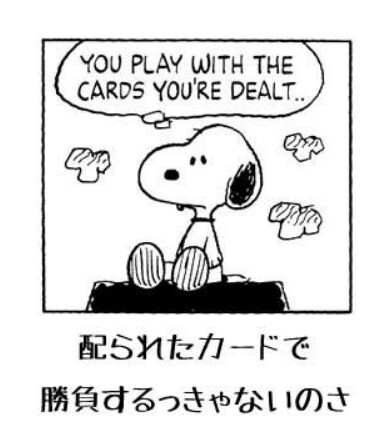So I went down a rabbit hole and came up with a Japanese question…
I saw this post, which led me to listen to a podcast, which made me look up a Snoopy translation in Japanese, which has a grammar structure that I’ve never seen before (see below for pic)…
Questions:
-What is ~っきゃない?What is it short for?
-And how do you translate the のさ?
(Btw, I get the gist but I want to understand the Japanese grammar.)

くばられたカードで
しょうぶするっきゃないのさ
BONUS: Nice little blog post related to the quote.
dochiworks ドチワークス: RE; You play with cards you're dealt...配られたカードで勝負するっきゃないのさ

